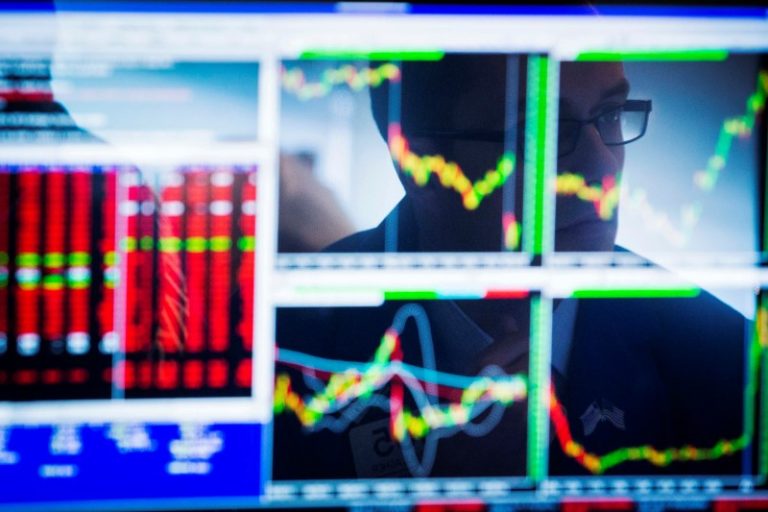© Reuters. FILE PHOTO: Gabon coup leader General Brice Oligui Nguema is sworn in as interim president during his swearing-in ceremony, in Libreville, Gabon, September 4, 2023. REUTERS/Stringer/File Photo
By Libby George and Marc Jones
LONDON (Reuters) – When Gabon’s General Brice Oligui Nguema ousted his distant cousin last month, he became the eighth military leader who has taken power by force in Africa since 2020. But one aspect about the country was different: it had sold a sizeable amount of bonds on international capital markets, and had just weeks prior sealed continental Africa’s first debt-for-nature swap.
The putsch not only sent Gabon’s bonds tumbling 10%, but also hit those issued by a number of other countries including neighbouring Cameroon, as jittery investors scanned for who might be next.
The apparent coup trend is adding to other major concerns deterring many investors from Africa – a wave of debt crises, tense geopolitics and an extreme vulnerability to climate change.
“Nearly all markets in that region are paying some price in terms of rising cost of debt,” said Sergey Dergachev, portfolio manager at Union Investment.
A UNDP study dated July shows how the costs add up. It estimated Guinea’s 2008 coup and one in Mali in 2012 wiped a combined $12-$13.5 billion off the two countries’ economies over a 5-year period. This represented 76% of Guinea’s 2008 gross domestic product and almost half of Mali’s 2012 GDP, the study calculated.
There have been scores of coups and attempted coups in recent decades including in Thailand, Ecuador, Egypt and Turkey.
Investors in those markets reacted reflexively – sell first, think later.
Gabon’s coup not only hurt its bonds, it also ratcheted up the interest rate premium, or ‘spread’, investors demand to hold bonds in JPMorgan’s multi-country “Nexgem” Africa index, a move that has still not fully retraced.
Cameroon has been particularly sensitive. Its bonds have lost more ground than Gabon’s since the coup. The country’s President Paul Biya has ruled for over 40 years through crackdowns and contested elections and wants his son to take over.
In focus too is Senegal, whose President Macky Sall recently ruled out running for a third term after violent unrest, and Congo Republic which had to quash weekend rumours of an overthrow while President Denis Sassou Nguesso – in power for 38 years – was in New York for the U.N. General Assembly.
UNEQUAL COUPS
“Certainly there’s a lot of eyeballs on this (coup) theme right now,” said Eamon Aghdasi, a sovereign analyst at investment firm GMO, who co-authored a recent paper on whether democracy matters to debt investors.
“As a bondholder, the worst-case scenario is that a new government comes in and repudiates the previous government’s debt”.
There is no sign of Gabon’s new leaders repudiating debt, though payments on bonds have run into trouble elsewhere, such as Niger.
Credit ratings usually suffer too. Fitch and Moody’s (NYSE:) have put Gabon on a downgrade warning since the Aug. 30 overthrow. Agencies slashed ratings for Burkina Faso, Mali and Niger, although further afield, Thailand’s never budged despite two coups in the last two decades.
“Coups, in general, in Africa or anywhere else, can cause problems for debt repayment partly because of the potential for sanctions,” S&P Global analyst Ravi Bhatia said, adding that vital international support can also get shelved.
RISING COSTS
Gabon, where the Bongo family had ruled for nearly 60 years amid stark inequality, has yet to face the kinds of sanctions imposed on Mali, Guinea, Burkina Faso and Niger – although its International Monetary Fund programme was already off track.
Moody’s cited the rise in oil prices in its decision to hold off on a full downgrade, as well as Gabon’s membership of the Central African monetary union (CFA franc), which shields it from currency volatility.
The country’s bond spreads have eased somewhat since investors’ initial panic and could recover entirely, some analysts say, if it makes its first post-coup bond payment on time next month.
“You may get a situation where bondholders might say, if it’s a change away from long-term single leaderships, then it may well be a turn for the better,” said Simon Quijano-Evans, chief economist with Gemcorp. “As long as elections and democracy come back”.
Broadly though, concerns about sovereign stability across Africa loom large. This year’s “Fragile States Index” published by non-profit The Fund for Peace rated 46 African countries as at least somewhat unstable.
Even in Kenya, a solid democracy on the other side of the continent, investors warn that general risk aversion could push up the cost of issuing a new bond.
Read the full article here









